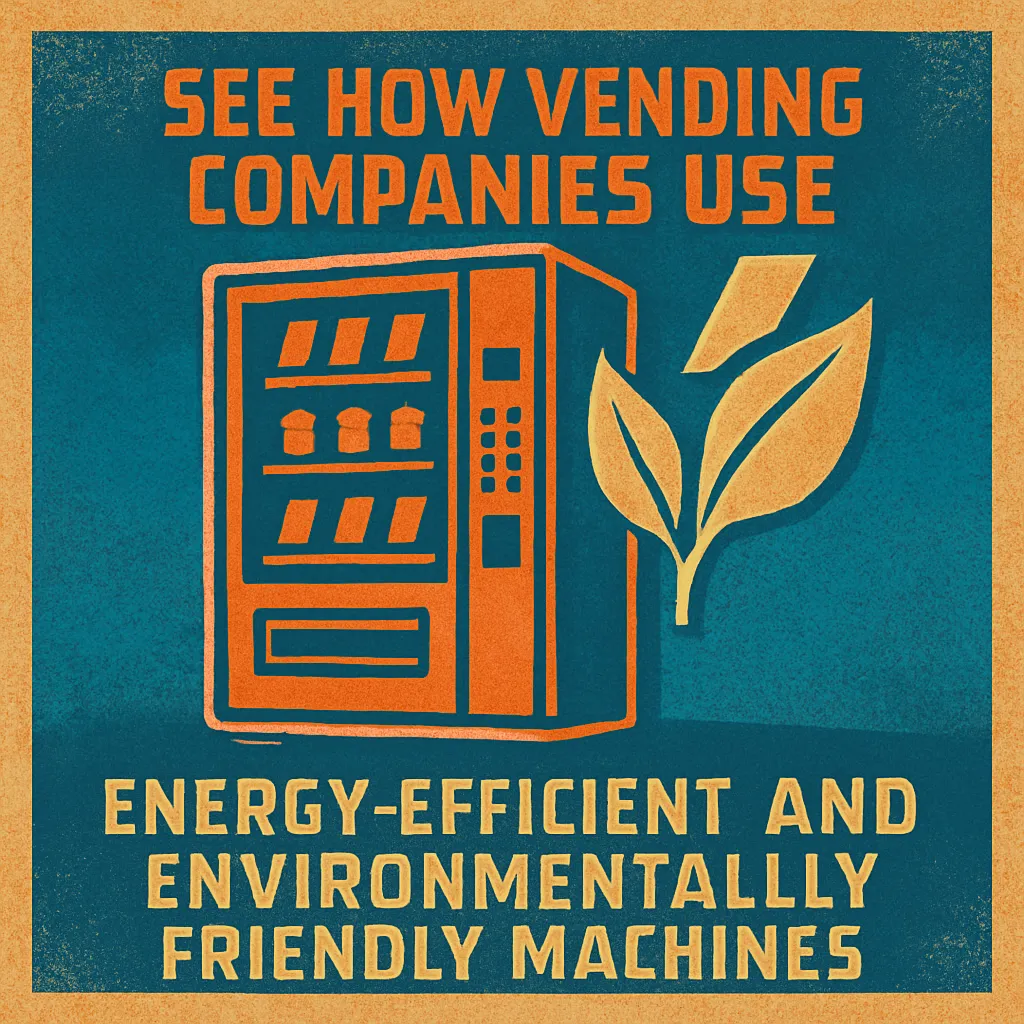Are There Eco-Friendly Vending Machines?
See how vending companies use energy-efficient and environmentally friendly machines.
Back to Vending FAQs ResourcesSee how vending companies use energy-efficient and environmentally friendly machines.
Back to Vending FAQs ResourcesThe vending industry is adapting to environmental concerns by offering machines that are energy-efficient, use sustainable materials, and minimize waste.
![]() Energy-efficient models reduce electricity consumption
Energy-efficient models reduce electricity consumption
![]() Sustainable materials and refrigerants lessen environmental impact
Sustainable materials and refrigerants lessen environmental impact
![]() Promotes responsible Consumption by offering eco-conscious product options
Promotes responsible Consumption by offering eco-conscious product options

As businesses and consumers increasingly prioritize sustainability, the vending industry has responded with innovative eco-friendly vending machines. These advanced units are designed to significantly reduce environmental impact through various features, making them a smart choice for any organization committed to green practices.
Modern eco-friendly vending machines are engineered for maximum energy efficiency. They incorporate advanced insulation, LED lighting that consumes far less power than traditional bulbs, and intelligent power management systems. These systems can put machines into a low-power mode during off-peak hours or when foot traffic is minimal, drastically cutting electricity use. For instance, many newer models use natural refrigerants like R290, which have a much lower global warming potential compared to older HFC refrigerants. This commitment to efficiency not only benefits the planet but can also lead to considerable operational cost savings over time. You can learn more about similar initiatives in specific sectors by exploring eco-friendly options for construction projects.
Beyond energy consumption, eco-friendly vending machines also focus on the materials used in their construction and the products they dispense. Manufacturers are increasingly using recycled and recyclable materials in machine components, from the casing to internal parts. Furthermore, these machines are often stocked with products that have minimal packaging, are made from sustainable ingredients, or come in recyclable containers. This comprehensive approach helps to reduce overall waste and supports a circular economy model. Understanding the differences and options available is key, as highlighted in the comparison of AI Coolers vs. Traditional Vending Machines.
Implementing eco-friendly vending machines can significantly bolster a business's green credentials and appeal to environmentally conscious clients and employees. It demonstrates a tangible commitment to corporate social responsibility, which can enhance brand image and foster loyalty. Moreover, the long-term cost benefits from reduced energy bills make them an economically sound investment. Many organizations are already adopting sustainable practices, for example, by opting for eco-friendly office coffee options. By choosing eco-friendly vending, businesses contribute to a healthier planet while also providing convenient, responsible refreshment solutions.
Eco-friendly vending machines are designed to minimize environmental impact through energy efficiency, sustainable materials, and reduced waste generation.
They often feature LED lighting, energy-efficient refrigeration systems, advanced insulation, and intelligent power management modes that reduce consumption when not in active use.
Yes, many eco-friendly machines carry certifications like Energy Star, indicating they meet strict energy efficiency guidelines set by government agencies.
Manufacturers increasingly use recycled plastics, sustainable metals, and non-toxic refrigerants (like R290 propane) that have a lower global warming potential.
Initial costs might be slightly higher, but long-term savings from reduced energy consumption and lower maintenance often offset this, leading to a better return on investment.
Absolutely. They are often stocked with products in recyclable packaging, organic options, and items from companies committed to sustainable practices, aligning with the machine's own ethos.
Look for Energy Star labels, clear indications of LED lighting, digital screens that manage power, and often, branding that promotes sustainability.
Generally, no more than traditional machines. Their improved components often lead to greater reliability and less frequent servicing.
With their robust construction and efficient components, these machines often have a longer operational lifespan, further reducing their environmental footprint.
By reducing energy consumption, minimizing greenhouse gas emissions from refrigerants, and promoting recyclable products, they significantly lower their carbon footprint and support broader environmental goals.